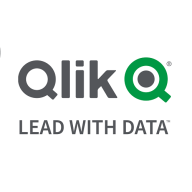

IBM InfoSphere DataStage and Qlik Compose offer data management solutions, with each having distinct strengths. IBM InfoSphere DataStage appears to lead in integration capabilities, while Qlik Compose is favored for its ease of use and automation.
Features: IBM InfoSphere DataStage is recognized for high scalability, robust metadata management, and versatile ETL features, making it effective for handling complex transactions. Qlik Compose stands out with automated code generation for data warehousing, real-time integration features, and strong modeling capabilities.
Room for Improvement: IBM InfoSphere DataStage requires enhancements in reducing costs, modernizing its interface, and simplifying its cloud integration. Qlik Compose could improve in scalability, handling complex SQL, and providing more support for intricate data paradigms.
Ease of Deployment and Customer Service: IBM InfoSphere DataStage predominantly serves on-premises setups, offering moderate customer service that varies by location. Qlik Compose is flexible with cloud deployments, providing generally better-rated customer service.
Pricing and ROI: IBM InfoSphere DataStage is more suitable for large enterprises due to high initial costs but offers competitive ROI through performance optimizations. Qlik Compose also presents high costs; however, its pricing aligns with data usage, ensuring consistent returns.


IBM InfoSphere DataStage is a high-quality data integration tool that aims to design, develop, and run jobs that move and transform data for organizations of different sizes. The product works by integrating data across multiple systems through a high-performance parallel framework. It supports extended metadata management, enterprise connectivity, and integration of all types of data.
The solution is the data integration component of IBM InfoSphere Information Server, providing a graphical framework for moving data from source systems to target systems. IBM InfoSphere DataStage can deliver data to data warehouses, data marts, operational data sources, and other enterprise applications. The tool works with various types of patterns - extract, transform and load (ETL), and extract, load, and transform (ELT). The scalability of the platform is achieved by using parallel processing and enterprise connectivity.
The solution has various versions, catering to different types of companies, which include the Server Edition, the Enterprise Edition, and the MVS Edition. Depending on which version a company has bought, different goals can be achieved. They include the following:
IBM InfoSphere DataStage can be deployed in various ways, including:
IBM InfoSphere DataStage Features
The tool has various features through which users can integrate and utilize their data effectively. The components of IBM InfoSphere DataStage include:
IBM InfoSphere DataStage Benefits
This solution offers many benefits for the companies that utilize it for data integration. Some of these benefits include:
Reviews from Real Users
A data/solution architect at a computer software company says the product is robust, easy to use, has a simple error logging mechanism, and works very well for huge volumes of data.
Tirthankar Roy Chowdhury, team leader at Tata Consultancy Services, feels the tool is user-friendly with a lot of functionalities, and doesn't require much coding because of its drag-and-drop features.
Qlik Sense is a powerful business intelligence tool that offers a range of features to help organizations make faster and more informed decisions. Its primary use cases include operational and financial dashboards, self-service reporting, and centralized access to cross-functional reports. The solution is praised for its mobile platform, ease of use, data-sharing capabilities, and extensibility.
Qlik Sense has helped organizations improve data literacy, reduce time consumed in complex reports, and provide widely available MI to senior stakeholders. It also enables self-service analytics, improves data quality and governance, enhances collaboration, and reduces costs.
We monitor all Data Integration reviews to prevent fraudulent reviews and keep review quality high. We do not post reviews by company employees or direct competitors. We validate each review for authenticity via cross-reference with LinkedIn, and personal follow-up with the reviewer when necessary.